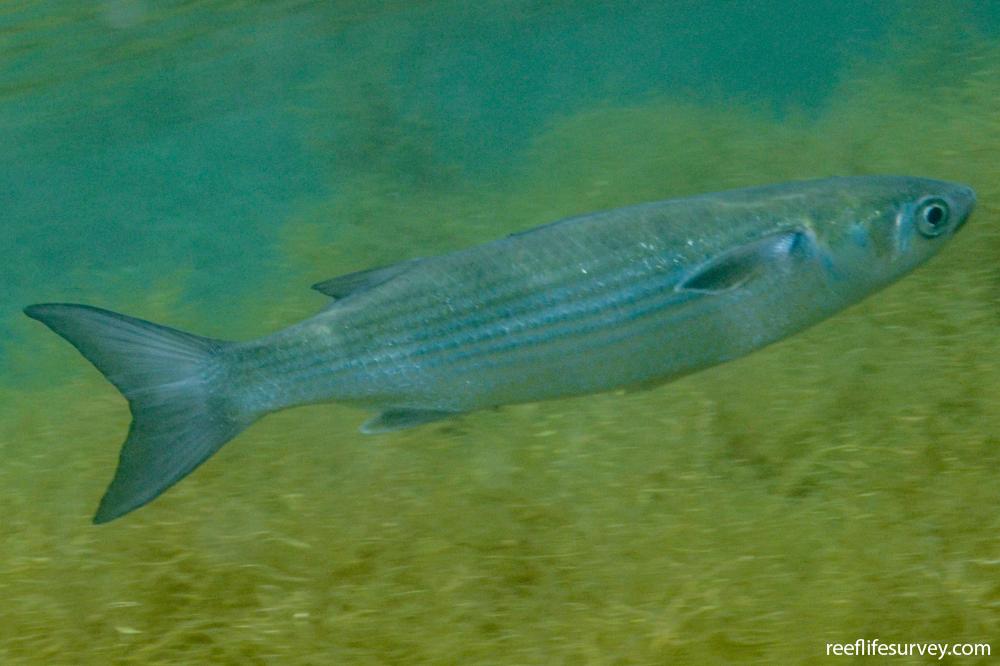Mugil cephalus
Sea mullet | Black Mullet | Black True Mullet | Bright Mullet | Bully Mullet | Callifaver Mullet | Common Grey Mullet | Common Mullet | Flathead Grey Mullet | Flathead Mullet | Grey Mullet | Haarder | Hardgut Mullet | Mangrove Mullet | River Mullet | SpringerSimilar Species
Same Genus
Distribution
Mediterranean, Temperate Africa, Temperate Australasia, Temperate South America, Temperate northern Atlantic, Temperate northern Pacific, Tropical Atlantic/Caribbean, Tropical Eastern Pacific, Tropical Indo-Pacific
Description
Cylindrical, silvery body with distinct scales, and a small mouth. Lacks a distinct black spot of pectoral base and has smaller, less pointed and darker pectoral fin than Crenimugil crenilabis (Wartylip Mullet). It differs from other local species in having a transparent eyelid covering each eye and eight rather than 9-13 segmented rays plus three spines in the anal fin. Can tolerate fresh water and often forages into estuaries and rivers.
Information
Max Size: 100 cm
Sea Temperature Range: 12.3-32.3°C
Depth: 0-120m
Habitat Generalization Index: N/A
Also referred to as the SGI (Species Generalisation Index), this describes the habitat niche breadth of the species. Species with values less than 15 are found in a relatively narrow range of reef habitat types (specialists), while those over 25 may be found on most hard substrates within their range (generalists). Learn more here.
Conservation and Rarity
IUCN Status: Least Concern
Occurrence: Infrequent (1.3% of sites)
Occurrence describes how often the species is found on surveys within its distribution. It is calculated as the % of reef sites surveyed by RLS divers across all the ecoregions in which the species has been observed
Abundance: Many (40 per transect)
Abundance is calculated as the average number of individuals recorded per RLS transect, where present.
Edit by: GJ Edgar. 2008. Australian Marine Life. New Holland, Sydney






